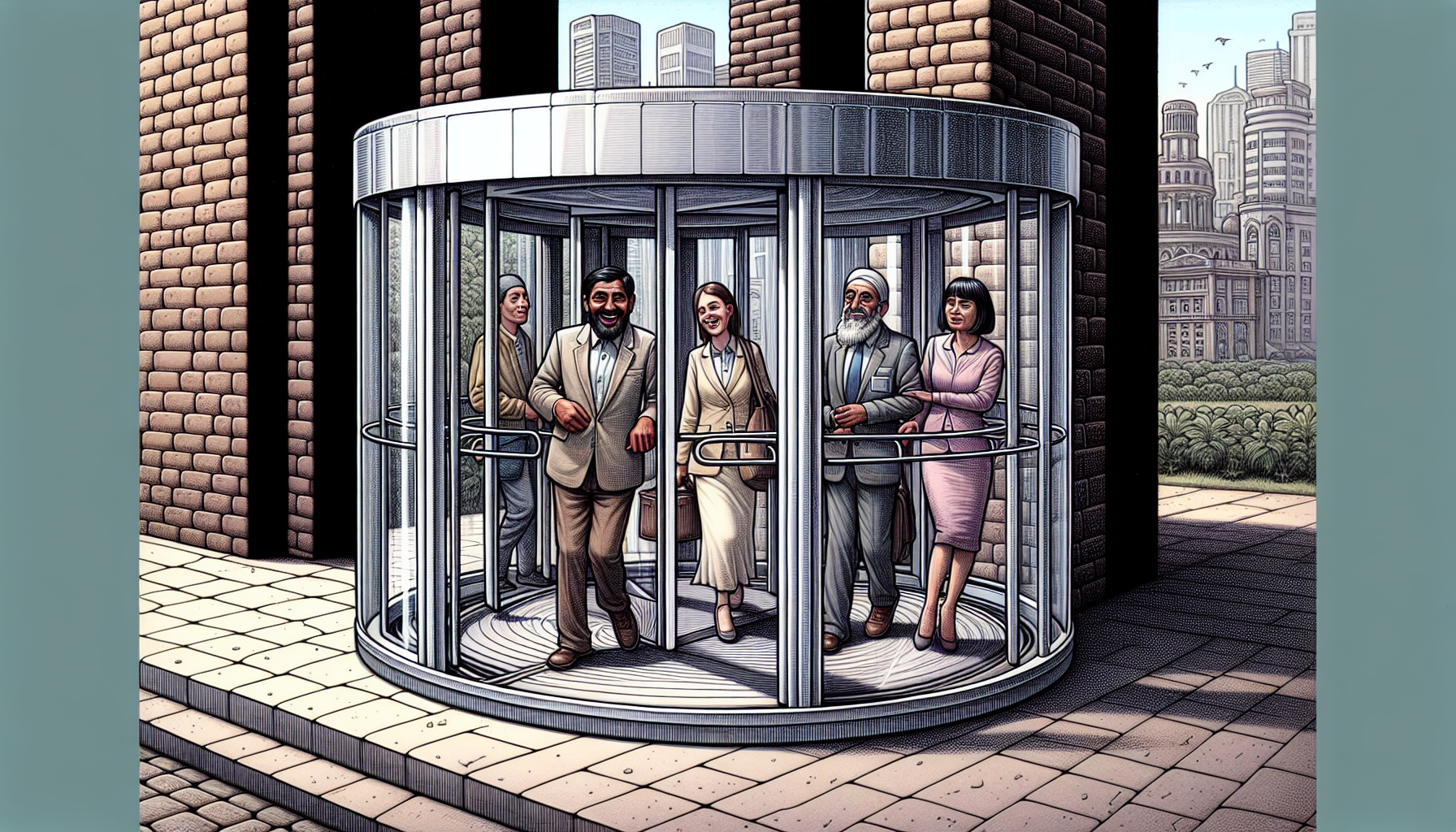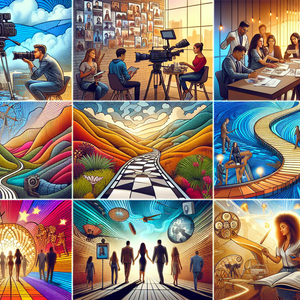From Disco to Data: The Transformation of Entertainment Jobs

The late 1970s and early 1980s were dominated by the disco craze, which created a unique set of job opportunities. Nightclubs flourished, and positions such as DJs, dancers, and event promoters became highly sought after. Disco was not merely a musical genre; it was a cultural phenomenon that defined nightlife and social gatherings. Iconic venues like Studio 54 in New York City became epicenters of fashion and celebrity, offering jobs that intertwined lifestyle, artistry, and social dynamics. Performers captivated audiences with their moves and charisma, leading to the rise of dance troupes and live bands. These entertainers, often regarded as cultural icons, played a significant role in shaping the entertainment scene. However, as the disco ball began to fade, the industry faced significant shifts that would redefine job roles and opportunities.
Supporting Example: The Role of DJs and Event Promoters
DJs became the heartbeat of the disco scene, responsible for curating the night’s soundtrack and creating an unforgettable atmosphere. Promoters, on the other hand, were essential for marketing these vibrant events, ensuring clubs were packed and lively. These roles exemplified how entertainment jobs were intertwined with cultural trends and social experiences.
The Shift to Television and New Media
As the 1980s progressed, the allure of disco began to wane, giving way to a new medium that started to dominate the entertainment landscape: television. The launch of cable networks like MTV in 1981 revolutionized how music was consumed and marketed. Suddenly, music videos became a crucial tool for artists and record labels, leading to the emergence of new job roles such as video directors, producers, and on-screen talent. Television experienced a renaissance during this period, with sitcoms and dramatic series captivating audiences. The rise of network television created a demand for writers, directors, and actors, while also opening doors for behind-the-scenes roles in production, editing, and set design. The job market expanded, providing opportunities for a diverse range of talent.
Supporting Example: The Impact of MTV
MTV’s launch not only influenced the music industry but also created a plethora of job opportunities. Video directors and producers became essential in crafting the visual representation of music, leading to a new artistic form that required specialized skills. Additionally, the popularity of television led to increased viewership and advertising revenue, boosting the demand for content creators. Moreover, the introduction of home video technology allowed viewers to engage with content in unprecedented ways. The rise of video rental stores created jobs in retail, and families began to collect tapes, fostering a new market for entertainment consumption.
The Digital Revolution Begins
As the decade came to a close, the seeds of the digital revolution were being sown. The advent of personal computers and early digital technology began to significantly influence the entertainment industry. The rise of computer-generated imagery (CGI) foreshadowed the transformation that would soon take place in film and television production, paving the way for more sophisticated visual storytelling. The emergence of video games as a legitimate entertainment medium further diversified job opportunities within the industry. Roles in game design, programming, and interactive storytelling began to take shape, laying the groundwork for a future that embraced digital entertainment in ways previously unimaginable.
Supporting Example: The Video Game Boom
The 1980s saw the rise of iconic video games, such as Pac-Man and Tetris, which not only captured the public’s imagination but also generated a demand for skilled professionals in game development. This burgeoning sector offered new career paths, including game designers and software engineers, which would become increasingly vital as technology advanced.
The 1980s represented a transformative era for entertainment jobs, moving from the vibrant world of disco and live performances to the burgeoning fields of television and digital media. This decade not only expanded the scope of career opportunities in entertainment but also reshaped the way audiences consumed content. As we reflect on this period, it is clear that the jobs created during this time laid the foundation for the diverse and dynamic entertainment landscape we experience today. The transition from disco to data highlights the adaptability of the industry and serves as a reminder of the ever-evolving nature of entertainment and the careers it fosters. As technology continues to advance and new forms of media emerge, the job roles within the entertainment industry will undoubtedly continue to evolve, reflecting cultural trends and audience preferences.
Music Video Producer
Major record labels (e.g., Universal Music Group), independent production companies, and advertising agencies
Core Responsibilities
Oversee the entire production process of music videos, from concept development to final editing.
Collaborate with artists, directors, and cinematographers to create a cohesive vision that aligns with the music.
Manage budgets, schedules, and logistics to ensure timely delivery of projects.
Required Skills
Strong understanding of visual storytelling and artistic direction.
Proficiency in video editing software such as Adobe Premiere Pro or Final Cut Pro.
Excellent communication and project management skills.
Video Game Designer
Major gaming studios (e.g., Electronic Arts, Activision), indie game developers, and mobile app companies
Core Responsibilities
Create engaging gameplay mechanics, characters, and storylines for video games.
Collaborate with artists and programmers to develop game prototypes and oversee their production.
Conduct playtesting sessions to gather feedback and refine gameplay experiences.
Required Skills
Proficiency in game design software (e.g., Unity, Unreal Engine) and scripting languages (e.g., C#).
Strong creativity and problem-solving abilities, with a passion for gaming.
Experience in user experience (UX) design is a plus.
Television Scriptwriter
Television networks (e.g., NBC, HBO), streaming platforms (e.g., Netflix, Hulu), and production companies
Core Responsibilities
Develop original scripts or adapt existing works for television shows, ensuring compelling narratives and character development.
Collaborate with producers and directors to refine scripts and incorporate feedback.
Attend writers' rooms and contribute to brainstorming sessions for future episodes or seasons.
Required Skills
Strong writing skills with an understanding of screenplay formatting and structure.
Ability to work under tight deadlines and adapt to changing requirements.
Familiarity with various genres and trends in television programming.
Digital Media Marketing Specialist
Entertainment companies, digital marketing agencies, and media studios
Core Responsibilities
Develop and implement marketing strategies for promoting entertainment content across digital platforms.
Analyze audience engagement metrics to optimize campaigns and content distribution.
Collaborate with content creators and social media managers to enhance brand visibility.
Required Skills
Proficiency in digital marketing tools and analytics platforms (e.g., Google Analytics, Hootsuite).
Strong written and verbal communication skills, with a flair for storytelling.
Knowledge of SEO best practices and social media advertising strategies.
Live Event Coordinator
Event management firms, concert promotion companies, and entertainment venues
Core Responsibilities
Plan and execute live events, including concerts, festivals, and promotional activities.
Coordinate logistics such as venue selection, vendor management, and on-site operations.
Work closely with artists, sponsors, and production teams to ensure a seamless event experience.
Required Skills
Strong organizational skills and the ability to manage multiple projects simultaneously.
Excellent interpersonal and negotiation skills to liaise with various stakeholders.
Experience with event management software and tools.


